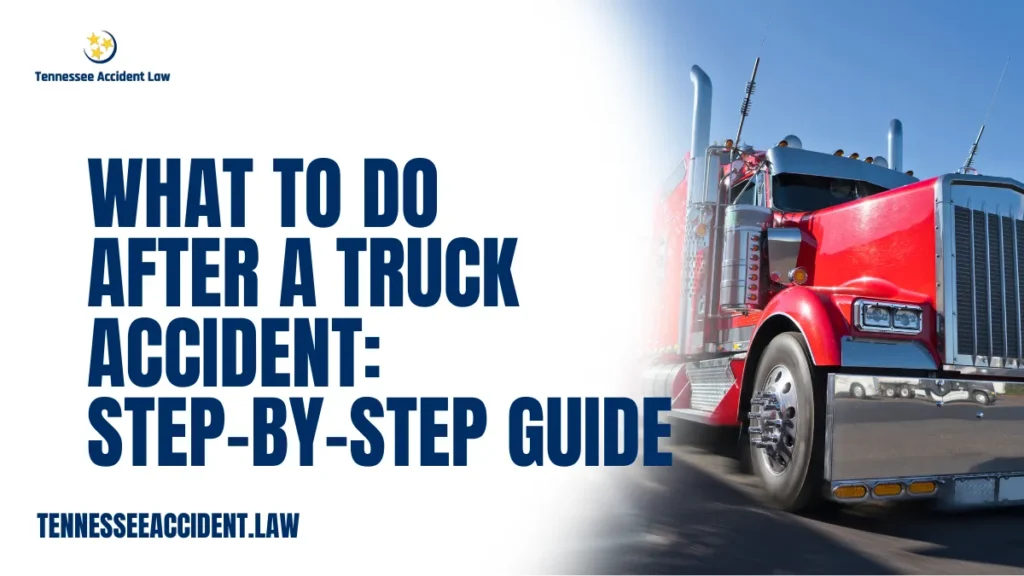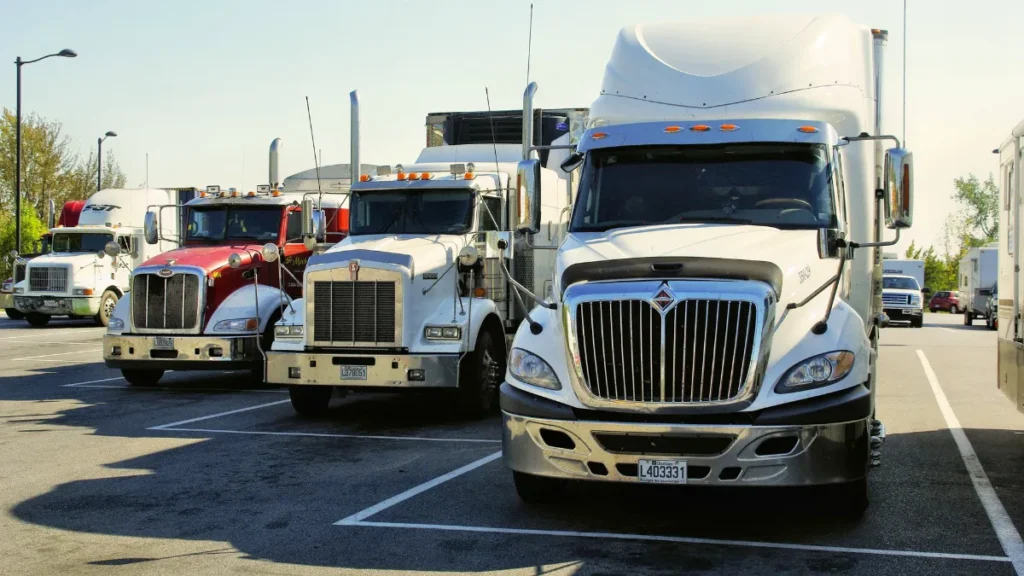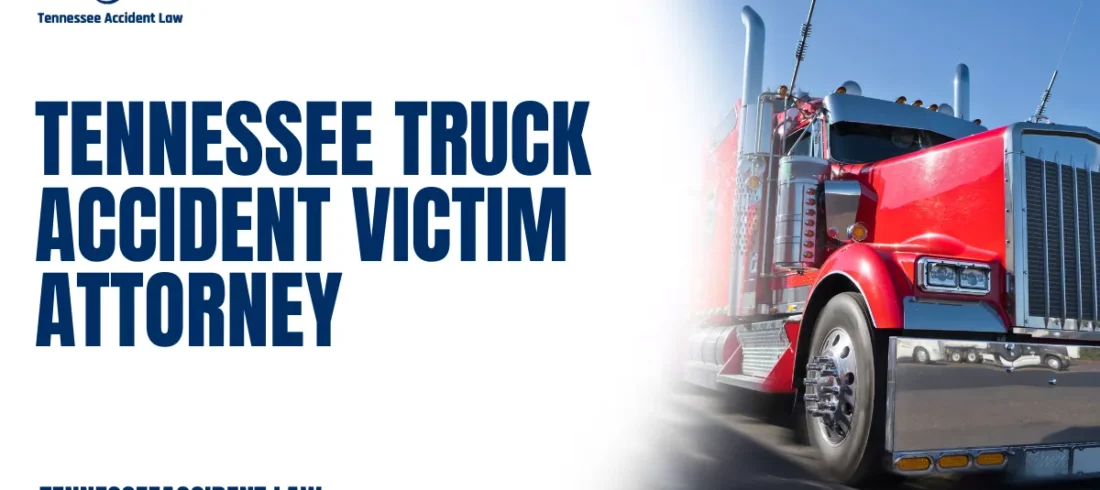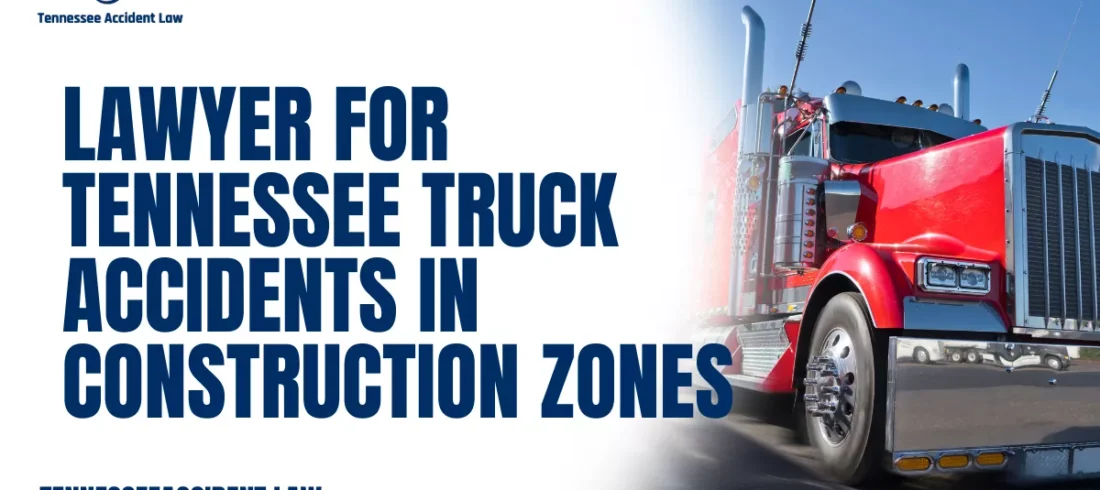
When involved in a truck accident, the aftermath can feel overwhelming. Knowing what to do after a truck accident is critical for protecting your health, your legal rights, and your financial future. At Tennessee Accident Law, we are here to guide you through every essential step. Follow this comprehensive guide to ensure you are taking the right actions after a traumatic truck collision.
Call us now at 615-212-9866 or complete our free case evaluation form to get started on your case today.
1. Prioritize Your Safety and Health Immediately
Your first concern in what to do after a truck accident is personal safety. If you can move without risking further injury, get yourself and others out of immediate danger. Turn on hazard lights and, if possible, move vehicles out of traffic.
Call 911 without delay. Reporting the accident ensures police and emergency medical responders will arrive at the scene. Even if you believe your injuries are minor, accept medical evaluation on-site. Some injuries, like traumatic brain injuries or internal bleeding, may not present symptoms immediately but can be life-threatening.
2. Notify Law Enforcement and File an Official Report
A crucial part of what to do after a truck accident is contacting the police. Law enforcement will create an accident report documenting the scene, witness accounts, and driver statements. This official report becomes a foundational piece of evidence if you pursue compensation.
When speaking with officers, provide honest information without admitting fault or speculating about the cause. Anything you say can be used against you later, so stick to the facts.
3. Document the Accident Scene Thoroughly
Gathering evidence immediately is one of the most important steps in what to do after a truck accident. Use your smartphone to capture high-quality photographs and videos of:
- Vehicle damage
- Skid marks
- Traffic signs and signals
- Road conditions
- Your visible injuries
- Weather conditions
Also, obtain the names, contact information, and insurance details of all drivers involved. If there are witnesses, collect their contact information as well. Their testimonies could be vital to your case.
4. Seek Comprehensive Medical Attention
Even if paramedics assess you at the scene, follow up with a full medical evaluation as soon as possible. Comprehensive medical documentation is essential when establishing a direct link between your injuries and the accident.
Delaying medical treatment not only jeopardizes your health but also provides insurance companies an opportunity to argue that your injuries were not serious or unrelated to the accident.

5. Notify Your Insurance Company Carefully
Another vital step in what to do after a truck accident is informing your insurer about the accident promptly. However, exercise caution during this communication. Insurance adjusters may seem friendly, but their primary goal is to minimize the company’s financial exposure.
Stick to basic facts without speculating, assigning blame, or providing detailed statements until you have legal counsel guiding you.
6. Preserve All Relevant Evidence
Keep all medical records, accident reports, vehicle repair receipts, wage loss documentation, and any communications related to the accident organized. This evidence is invaluable when proving liability and damages.
Additionally, maintain a journal detailing your physical symptoms, emotional struggles, and how the accident has impacted your daily life. This personal record could substantiate claims for pain and suffering.
7. Consult an Experienced Truck Accident Attorney
What to do after a truck accident includes securing legal representation immediately. Truck accident cases are uniquely complex, often involving multiple parties like trucking companies, vehicle manufacturers, and insurance providers.
At Tennessee Accident Law, we specialize in advocating for truck accident victims. Our team has the resources, expertise, and tenacity to investigate accidents thoroughly and hold all liable parties accountable.
Complete our free case evaluation form today to begin your journey toward justice and financial recovery, or call us now at 615-212-9866 for immediate assistance.
8. Be Cautious with Settlement Offers
Trucking companies and their insurers are quick to offer settlements after an accident. These initial offers are rarely in your best interest and typically undervalue the true extent of your damages.
Before accepting any offer, consult with your attorney to evaluate the full scope of your current and future medical costs, lost earnings, property damage, and emotional distress.
9. Understand the Statute of Limitations
In Tennessee, there is a strict time limit for filing personal injury claims stemming from a truck accident. Failing to act within this window can permanently bar you from seeking compensation.
What to do after a truck accident includes being aware of these critical deadlines. Partnering with Tennessee Accident Law ensures your case is handled efficiently and in compliance with all legal requirements.
10. Focus on Your Recovery While Your Attorney Fights for You
After addressing the immediate steps of what to do after a truck accident, your priority should shift toward physical and emotional healing. Trust your legal team to handle all communications, negotiations, and litigation on your behalf.
Our dedicated attorneys at Tennessee Accident Law are committed to securing the compensation you need to move forward with your life. We are tireless advocates for our clients, and we will not settle for less than you deserve.
Complete the free case evaluation form or call us now at 615-212-9866 to take the first step toward recovery and justice.
11. Investigate and Follow Trucking Industry Regulations
In truck accident cases, it’s crucial to understand the trucking industry regulations that govern how trucks should be operated. One often overlooked aspect of what to do after a truck accident is recognizing that truck drivers and trucking companies are held to a higher standard of accountability due to federal and state regulations.
Trucking companies must adhere to specific rules set by the Federal Motor Carrier Safety Administration (FMCSA), including limits on driving hours, maintenance requirements, and drug and alcohol testing. If any of these regulations are violated, it could significantly strengthen your case when pursuing compensation.
For example, if the truck driver was fatigued due to excessive hours worked, it may be possible to prove that negligence played a role in the accident. Similarly, if a trucking company failed to properly maintain their vehicles, this could indicate liability for the accident. An experienced truck accident attorney, like those at Tennessee Accident Law, will thoroughly investigate whether these regulations were violated and how it contributed to your accident.
Knowing the trucking industry’s regulatory framework can help establish fault and secure the compensation you deserve. Let us use our knowledge of these complex regulations to your advantage, ensuring that all factors are considered when assessing the full scope of your damages.
Complete our free case evaluation form today or call us now at 615-212-9866 for a comprehensive review of your case.

Control of Your Future After a Truck Accident
Knowing what to do after a truck accident empowers you to protect your rights and pursue the compensation you deserve. At Tennessee Accident Law, we stand ready to guide you through every step of the process with unwavering commitment and unparalleled legal expertise.
Do not wait. Complete our free case evaluation form today or call us now at 615-212-9866 to begin the path toward recovery and justice.
Sources
- National Highway Traffic Safety Administration (NHTSA): Provides vital statistics and safety information on large truck accidents.
- Federal Motor Carrier Safety Administration (FMCSA): Regulates the trucking industry to reduce crashes, injuries, and fatalities involving large trucks and buses.
- Centers for Disease Control and Prevention (CDC) – Injury Prevention & Control: Offers extensive resources on injury prevention and recovery after motor vehicle accidents.


